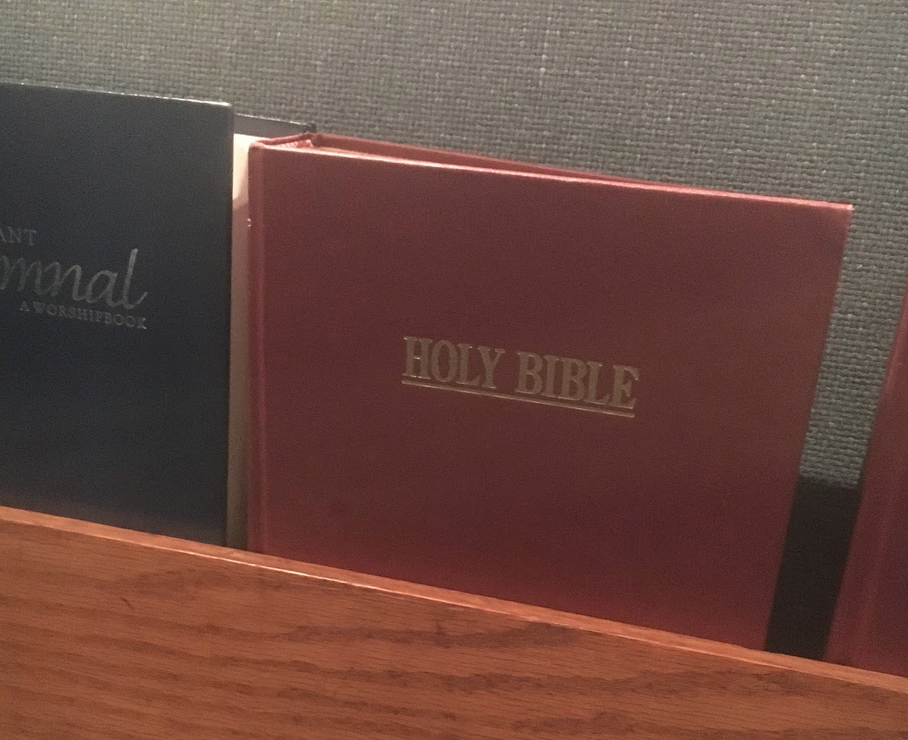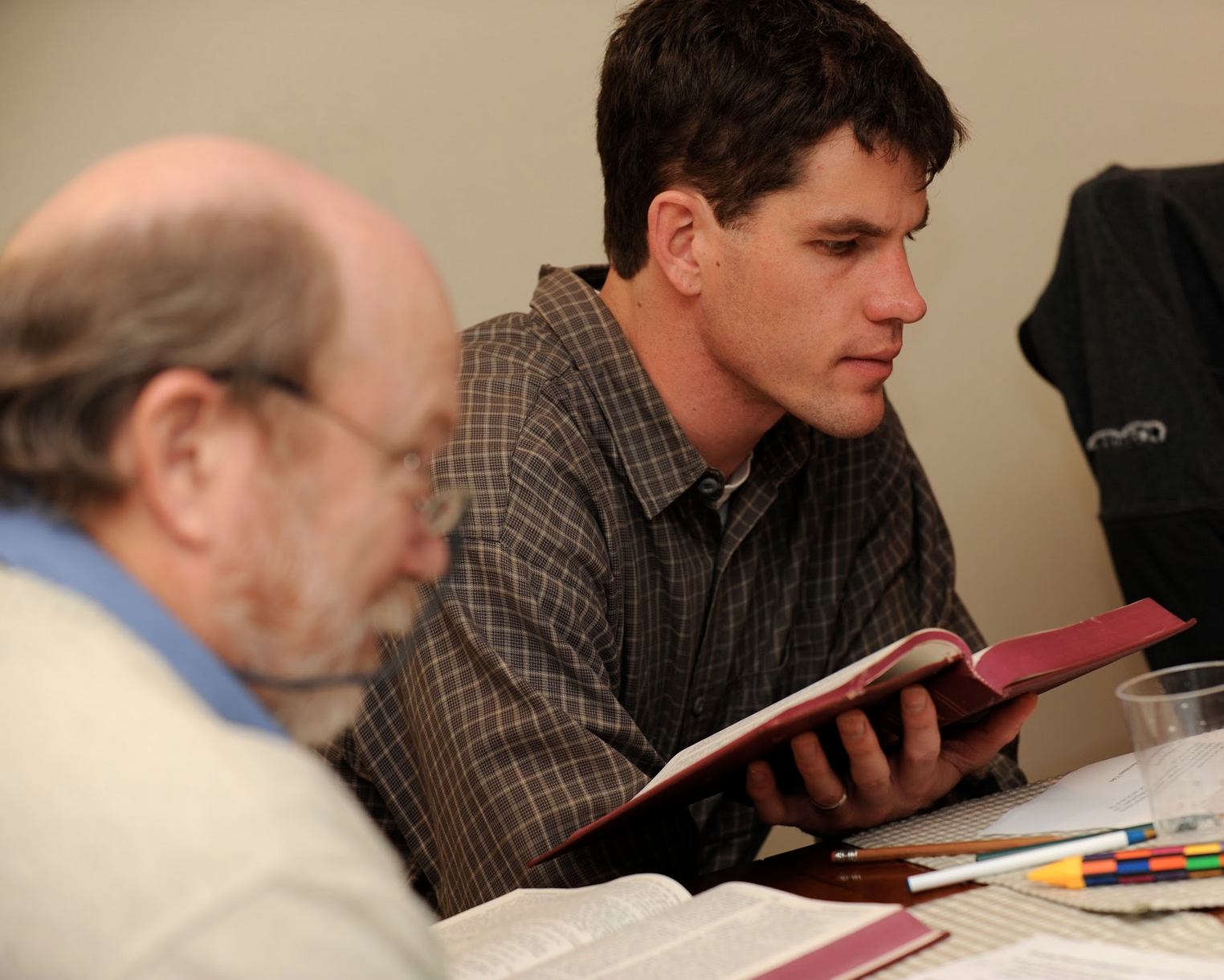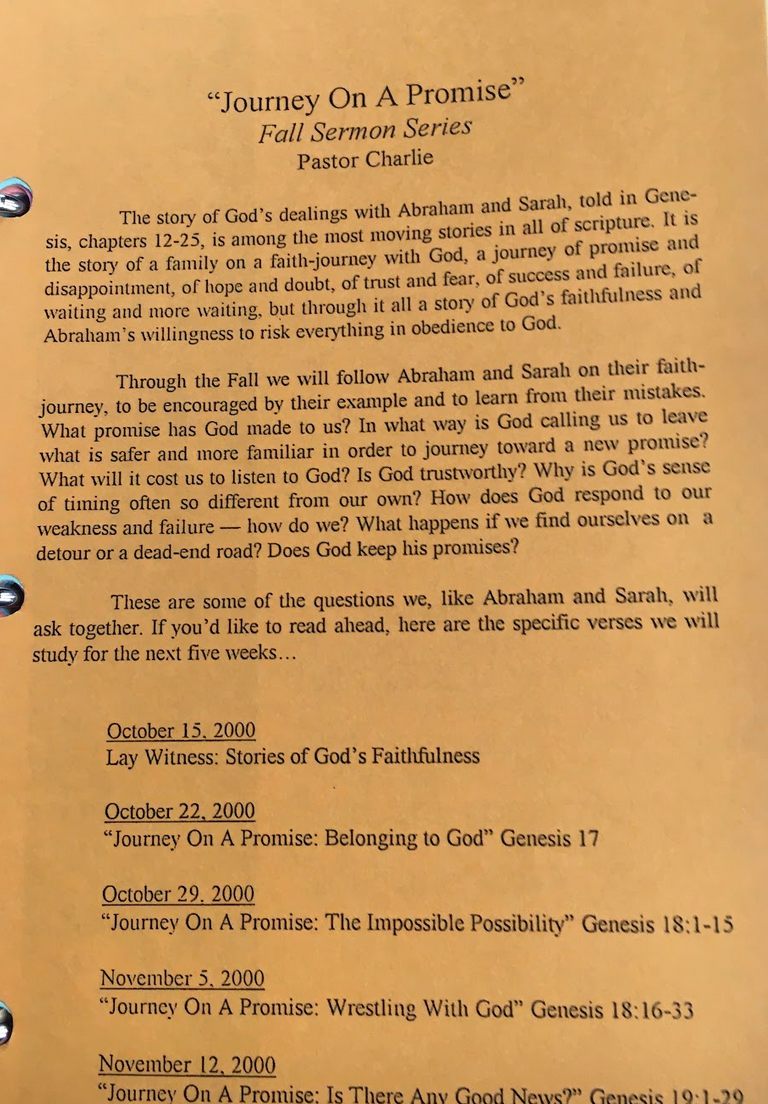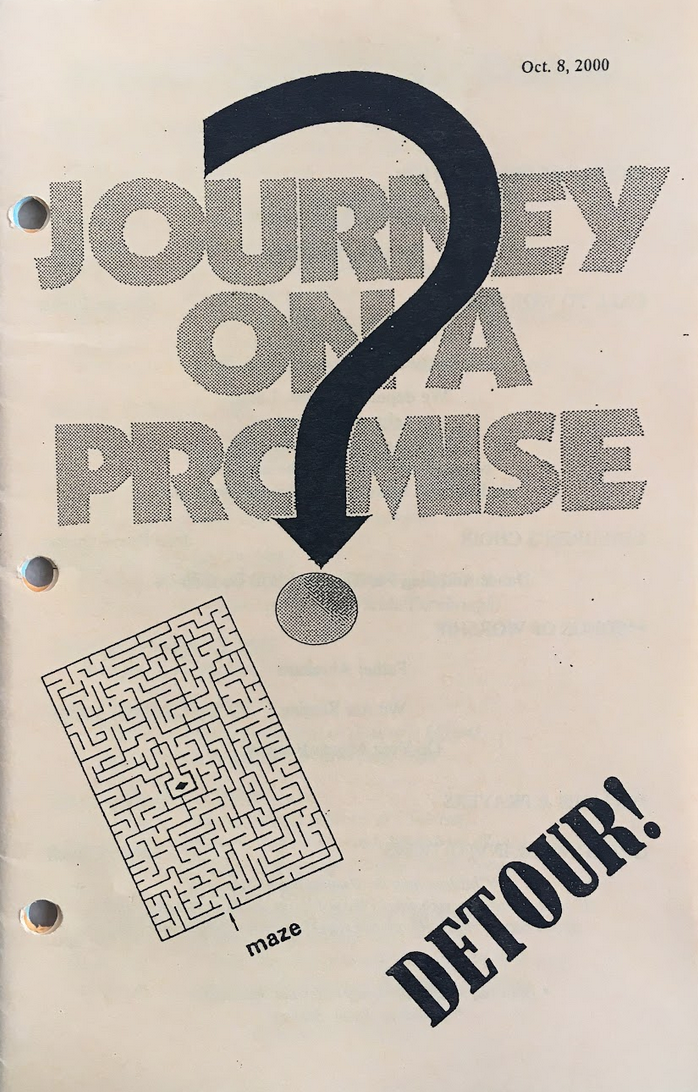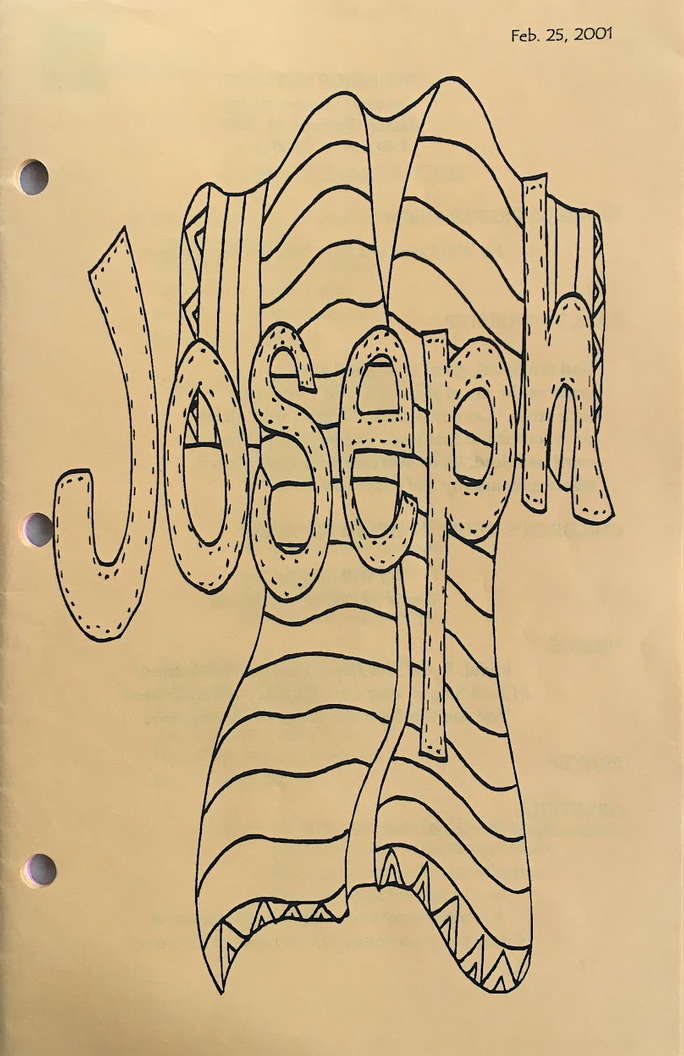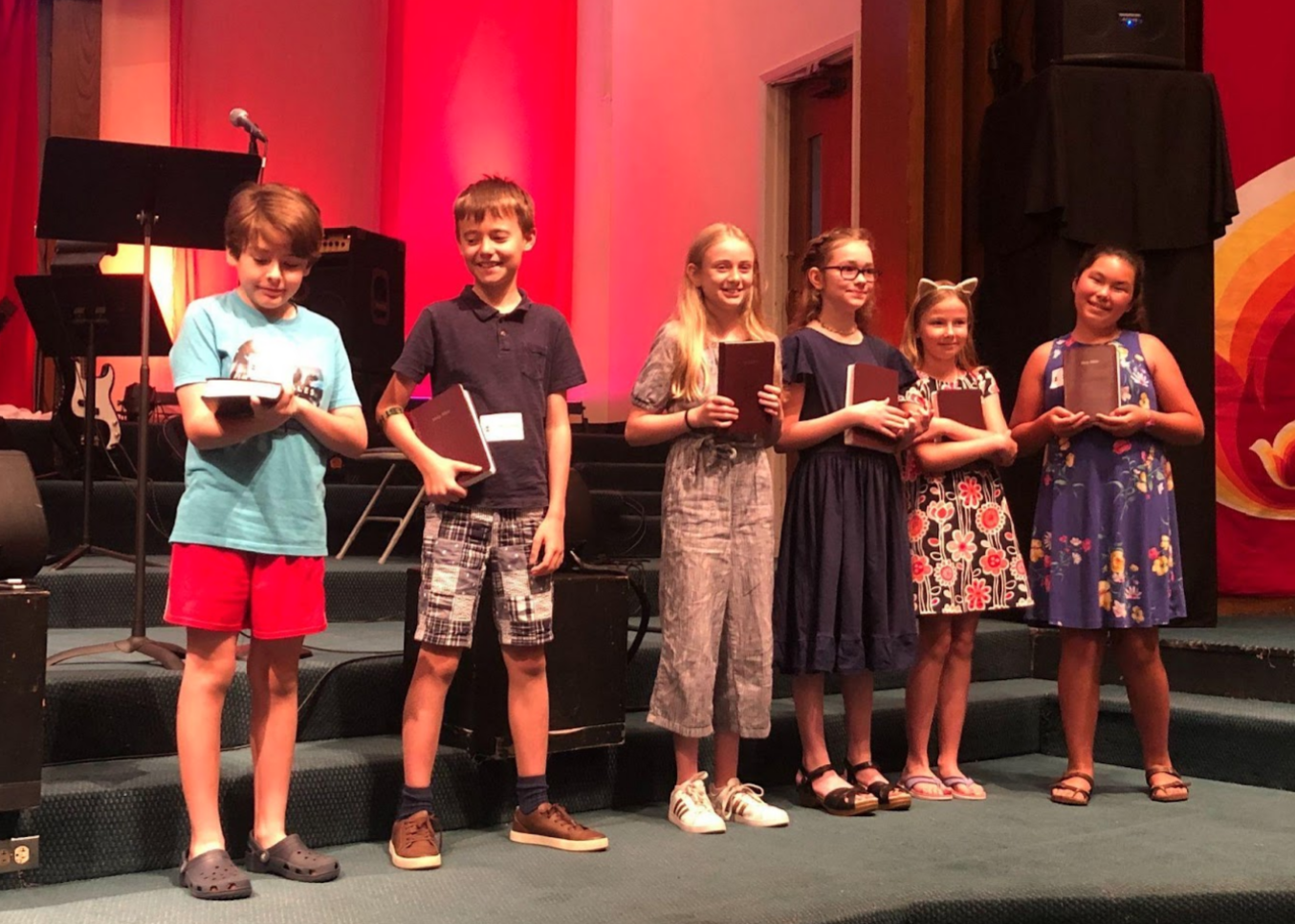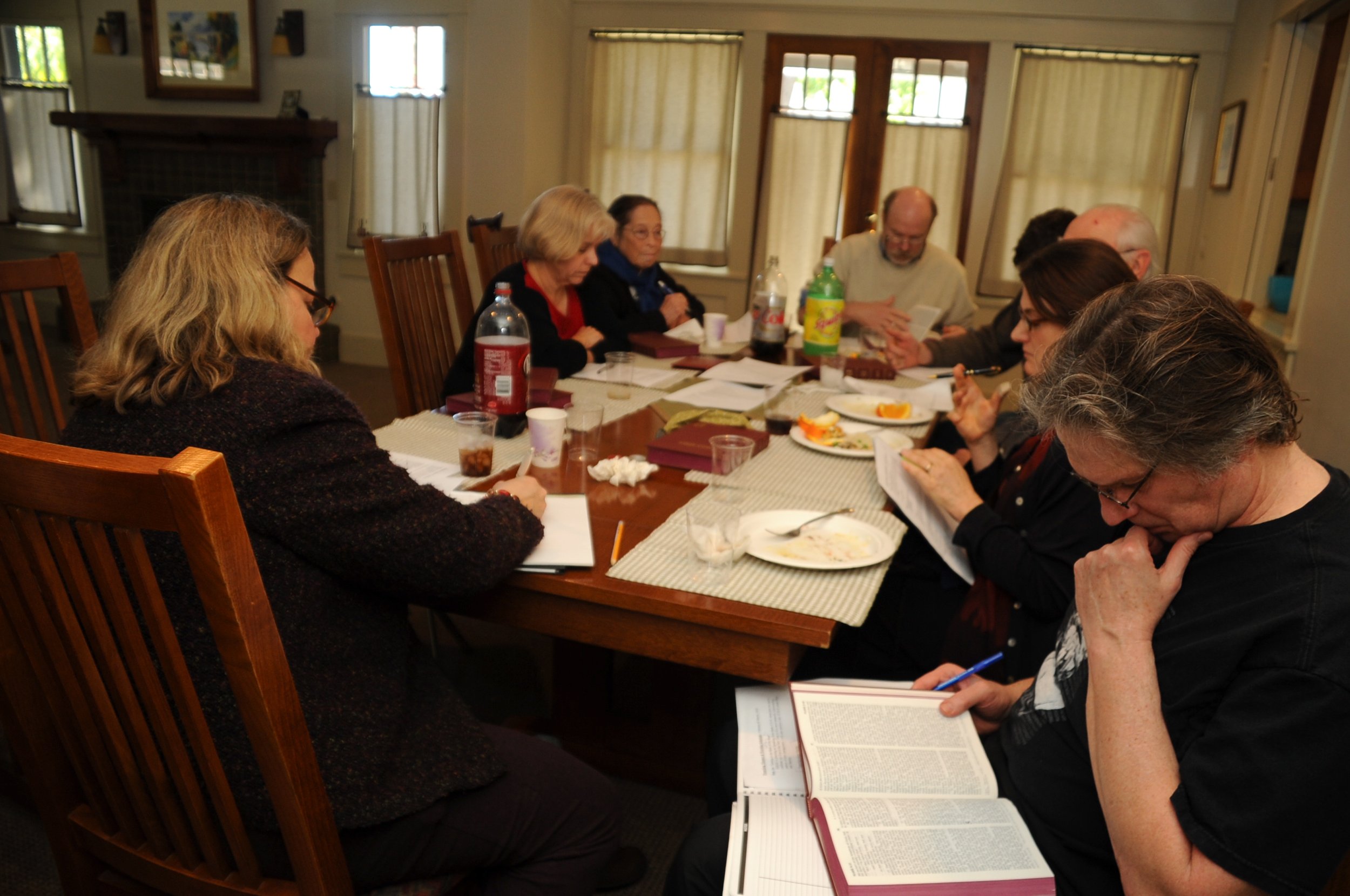Worship: The Word
When many people think about “church,” it’s Sunday morning that comes to mind. In this series of reflections on the heritage of Pasadena Covenant, we’ve looked at the music of the Sunday worship experience and the arts and media used in worship. This post looks at preaching and at the church’s commitment to God’s word as an element of worship and as a guide for life.
PasCov has followed the denomination’s view of Scripture, described in a resource paper which is excerpted here:
The Preamble to the Covenant Constitution affirms the centrality of the Bible for faith and practice by saying, “the Holy Scripture, the Old and New Testament, is the Word of God and the only perfect rule for faith, doctrine, and conduct.” This conviction is repeated four times in Covenant Affirmations. Both Testaments, the sixty-six books of the Protestant canon, are together embraced and understood to provide an overarching account of God’s revealing and redemptive work begun in creation, continued in Israel, and culminating in Jesus Christ. With such a commitment to Scripture, early Covenant people constantly asked the question, “Where is it written?” when dealing with questions of doctrine or practice. This was not mere proof-texting; it was a determination to understand the intent of the whole of Scripture and the way it should be appropriated for life and thought. That question still guides us. In all we believe, do, and say, we place ourselves under the authority of God’s written word and seek its direction. Scripture itself is our compass, not formulations about Scripture or about its inspiration. Our great passion is constantly to renew our commitment to the authority of God as revealed in the Scriptures.
Covenant people, then, read and listen to the Bible: 1) faithfully, with a deep understanding of the power of God’s word and our differing interpretive lenses, which requires humility; 2) communally, with the understanding that interpretation calls for the help of both the Holy Spirit and the entire community of faith, including the historic church represented in the common Christian creeds; 3) rigorously, with the knowledge that the Bible comes to us across a distance of time and culture that calls for study and careful thought; 4) charitably, with regard to differing interpretations of Scripture; 5) holistically, with the belief that it is the movement of the whole Bible that guides us.
Covenant people also read with essential commitments to grace, because grace expresses the very character of God; to transformation, with a profound desire to be changed by our encounter with Scripture; and to mission, because valid reading leads us to join Jesus in the work that he is now doing in our world.
Central to PasCov's commitment to the Word has been its excellent preaching, something the church has long had a reputation for. Looking back on sermons gives us an idea of how much of the Word we have listened to at PasCov.
• In 1961, Arvid Carlson did a series from Matthew entitled “With the Master on the Mount.” His exposition of Jesus’ teaching was spread over 30 Sundays between January and October.
• In the second half of 1965, Paul Larsen preached 15 sermons on James and in 1970 he spent the fall on the first half of the book of Romans.
• Mel White preached twelve sermons on Peter, “The Man Who Knew Jesus Best,” in 1976.
• A chapter-by-chapter series on the book of Revelation was done by John Bray in 1981. His 20 sermons were supplemented with teaching during the evening service on sticky questions about topics such as the millennium.
• Charles Barker preached on Genesis in 2000-2001. In the fall, he covered Abraham’s story from Genesis 12 to 25, “Journey on a Promise.” He continued the next spring with the story of Joseph from Genesis 37 to 47, “The Hidden Call of God.”
• “The Brilliance of God’s Multiethnic Kingdom” was the focus of Steve Wong’s sermon series in 2020-21. In the fall, he took the congregation through Scripture from Genesis to Revelation. In the winter and spring, the texts were the teachings of Jesus, all showing the beauty of God’s intention for diversity, unity, and reconciliation as an expression of God’s wisdom.
We have also been blessed with memorable sermons from guest speakers. One person remembers a Pastor Klingberg, speaking in the late 1980s on “God Loves the Holy Fray.” The communion servers were hardly able to contain their tears after the sermon. Many visiting preachers have been from Fuller Seminary. One congregant remembers Leslie Allen’s series in 1997 on psalms of disorientation, reorientation, and orientation (see bulletin cover above). Another recalls George Ladd preaching a memorable sermon in the 1960s when the city was facing racial tension. One of the sermons of Bill Pannell, a regular guest in the 1970s and 1980s, referenced the famous African American preacher S.M. Lockridge: “It’s Friday, but Sunday’s coming!” There have been many others.
Our commitment to Scripture has also been evident in Sunday school classes, small groups, and children’s ministry. A previous post described how confirmation classes were a time for junior high students to study both the Old and New Testaments. During the 1950s and 1960s, when Bible memorization was encouraged with prizes, 4th through 6th graders were encouraged to learn long portions of Scripture, for example Psalm 23, John 1, and Romans 8. A more recent example is that in 2019 the church’s adult small group program started a series of inductive Bible studies on the parables of Jesus. Rich Lamb, a church member and InterVarsity Christian Fellowship staff leader, prepared the leaders. The books of I & II Kings, Habakkuk, John, Philippians, and Nehemiah have been subsequent focuses.
We have been blessed at PasCov to have gifted preachers, lay leaders, and congregants committed to God’s word. Preaching styles may change, but at the heart has always been the Bible. If over the last ten decades there has been good fruit in our lives and the communities in which we live and work, it is surely because we are responding to God’s word. The Lord, through the prophet Isaiah, says, “The words I speak are like that. They will not return to me without producing results. They will accomplish what I want them to. They will do exactly what I sent them to do” (Is 55:11 NIrV).
Beyond 100
What are the circumstances in the next decades in which we will need a “light on our path” as Psalm 119:105 describes God’s word? How will people in the next hundred years engage with Scripture? What challenges will there be to reading the Bible faithfully, communally, rigorously, charitably, and holistically?
We are so grateful to the many who have sought to follow God over the past century,
and now we seek to imitate their faith for the next hundred years.
Please join us in giving to this legacy of faithfulness!

